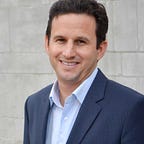Why I’m Voting No on Rex Tillerson’s Nomination to be Secretary of State
American history has been shaped by U.S. secretaries of state.
Secretary Dean Acheson guided the United States through the Cold War.
Secretary Henry Kissinger laid the groundwork for peace between Egypt and Israel.
Secretary Madeline Albright proved that diplomacy does not depend on gender, and that protecting refugees and human rights are core American principles.
And Secretary John Kerry helped to bring the international community together to tackle climate change.
As our nation’s top diplomat, the secretary of state is the highest ranking cabinet member, and the president’s top advisor on U.S. foreign policy.
The secretary balances relationships with some 180 countries, and is responsible for tens of thousands of Americans working at more than 250 posts around the world.
In other words, it takes a remarkable knowledge base and skill set to be secretary of state — particularly as the United States takes on a complex and complicated set of issues.
At the top of the list is climate change. The global changes that we’ve seen in the climate are affecting almost every part of the world, from droughts in sub-Saharan Africa to rising sea levels in parts of Asia.
We have also not seen this level of refugees and migrants since after World War II. The Rohingya, Syrians, Afghans, Guatemalans, and many, many others are fleeing war, violence, persecution, and instability.
Globalization and technology have disrupted economies, leaving governments, companies, and workers trying to figure out how to keep up with the times without being left behind.
And terrorism and violent extremism haunt parts of the globe, from the Middle East, to Europe, and our own borders.
The secretary of state has to take on all of these challenges, and do it in a way that advances U.S. interests and values.
After reviewing his record and his testimony before the Senate, I am not satisfied that Rex Tillerson is the right person to lead the State Department.
On each of these three criteria — views, knowledge base, and skills — I have concerns about his nomination at this point in the process.
First, I am not satisfied with Mr. Tillerson’s views.
There has been a clear consensus among both parties on the foundation of United States foreign policy. Throughout the confirmation process, however, Mr. Tillerson indicated that his views did not necessarily align with that consensus.
During discussions on international human rights, the hearing record shows that Mr. Tillerson was vague about oppressive governments, extra judicial killings, and the bombing of hospitals.
He demurred when given the opportunity to rule out a Muslim registry — a concept that is anathema to American values, and yet this Administration is dangerously close to implementing one.
But perhaps most concerning were Mr. Tillerson’s views on Russia. I don’t need to be the umpteenth person to list the many, many concerns we have about a country that is not America’s ally.
For decades, there has been a bi-partisan consensus about U.S. relations with Russia. And I am uncomfortable with confirming a secretary of state who does not share that bipartisan view.
Secondly, I am not satisfied that Mr. Tillerson has the knowledge base to lead United States’ diplomacy.
His vision for the State Department seemed to confuse the roles of the Department of State and the Department of Defense. During his confirmation hearing, Mr. Tillerson’s responded to a question on the South China Sea. But his answer focused on military solutions instead of the long list of diplomatic options which we should first explore.
That is not to say that a secretary of state can’t recommend military solutions. There’s a long history of the State Department doing just that — but it is always as a last resort. It always comes after a long pursuit of peace through diplomacy.
Finally, I am not satisfied that Mr. Tillerson will be able to translate the considerable skills that he has from ExxonMobil to the State Department.
His long career at Exxon is certainly impressive. But it’s the only international job on his resume. And let’s be clear: the company’s record does not at all align with U.S. foreign policy, from accusations related to human rights abuses to Exxon’s business operations in countries that are not friendly to the United States.
I’m not arguing that this makes Mr. Tillerson a bad person. As the CEO of a big company, he had his own objectives, and I understand and respect that. But it is not enough to say, I used to care only about ExxonMobil’s interests, but now I only care about the United States’ interest.
The next leader of the State Department will need to argue for our values and our priorities with friends and adversaries alike. He or she will need to balance business interests, with national security, with American values.
I approached this nomination process with an open mind. But Mr. Tillerson’s confirmation hearing left me with too many doubts about his views, his knowledge set, and his abilities.
I will be voting no on his nomination.
